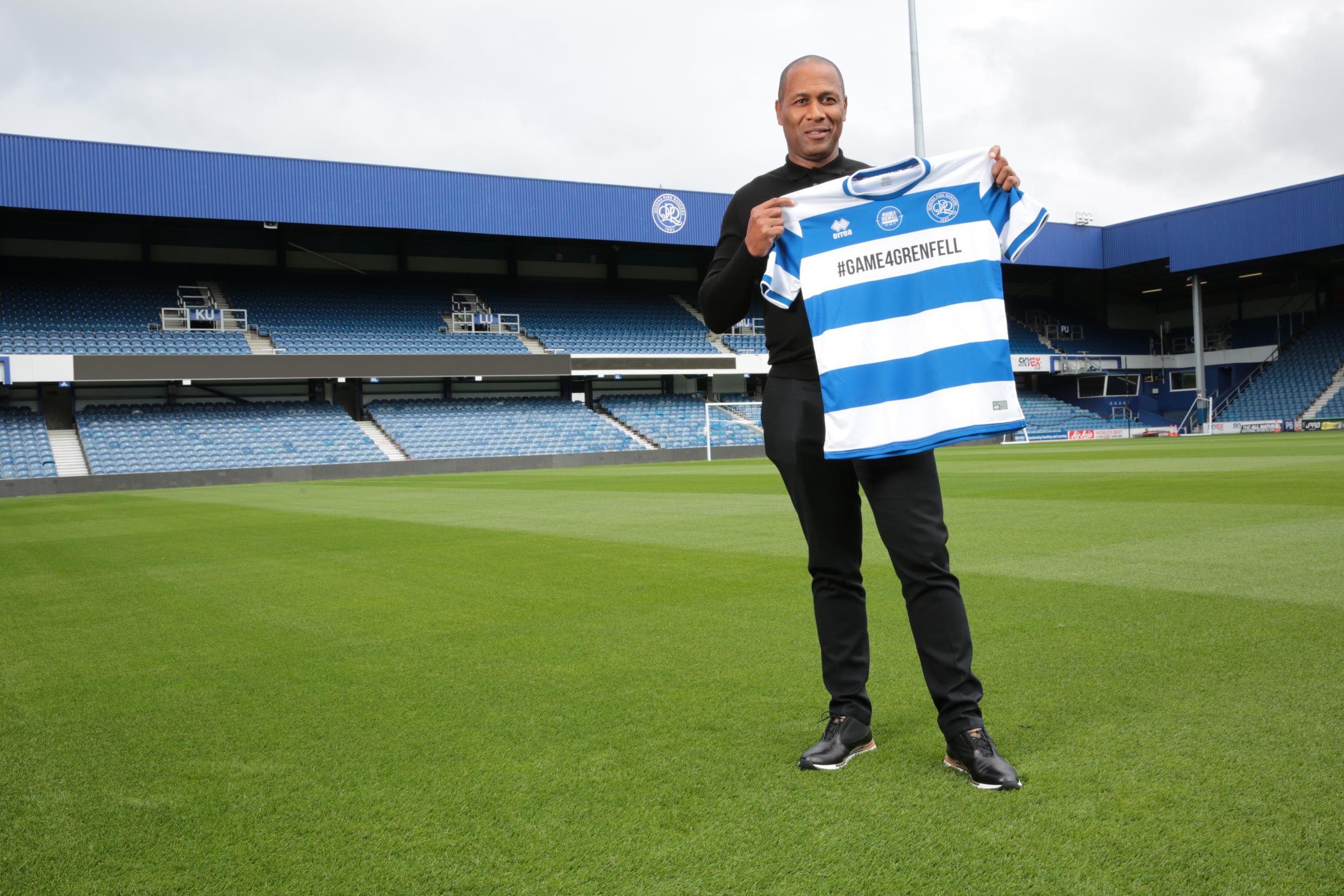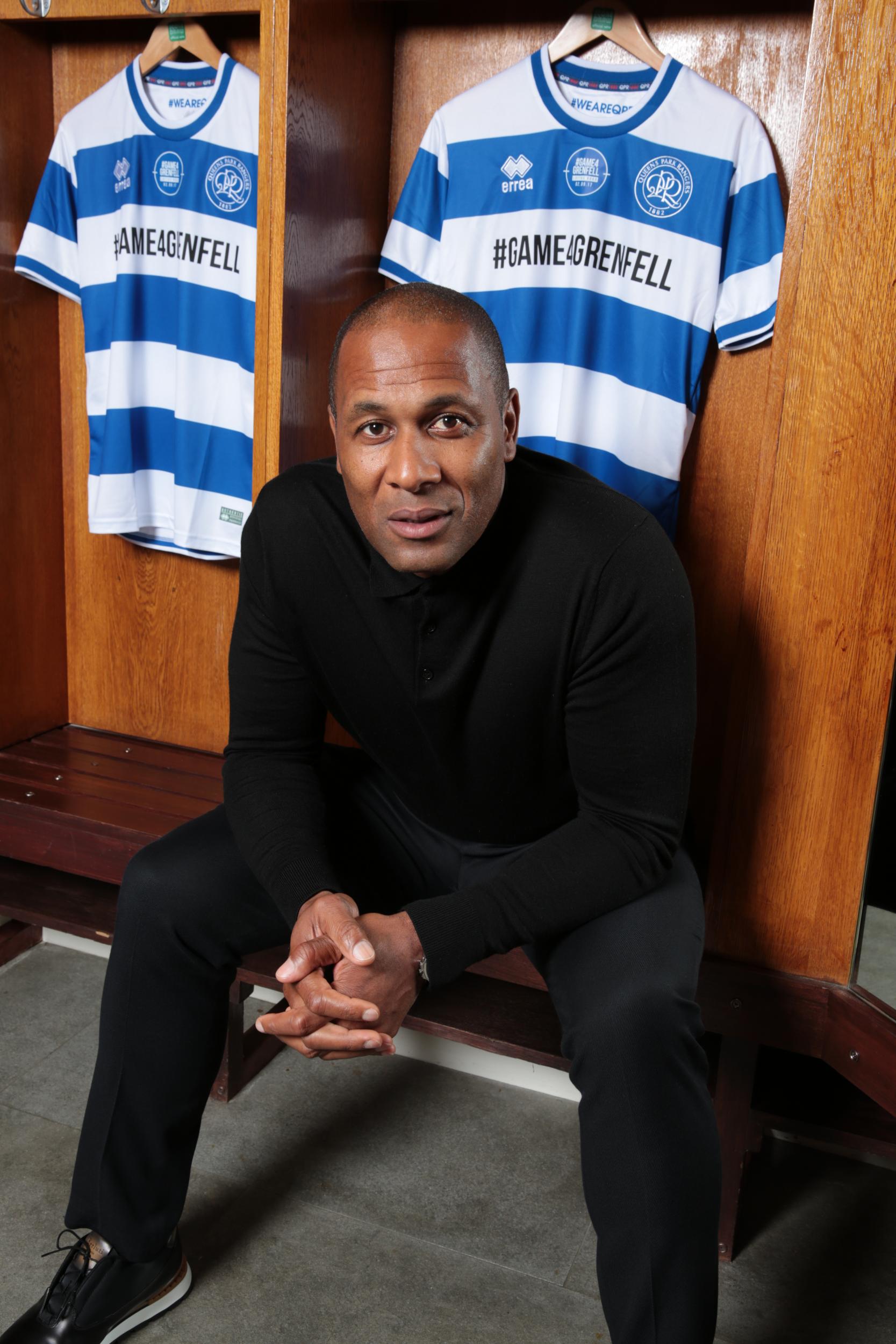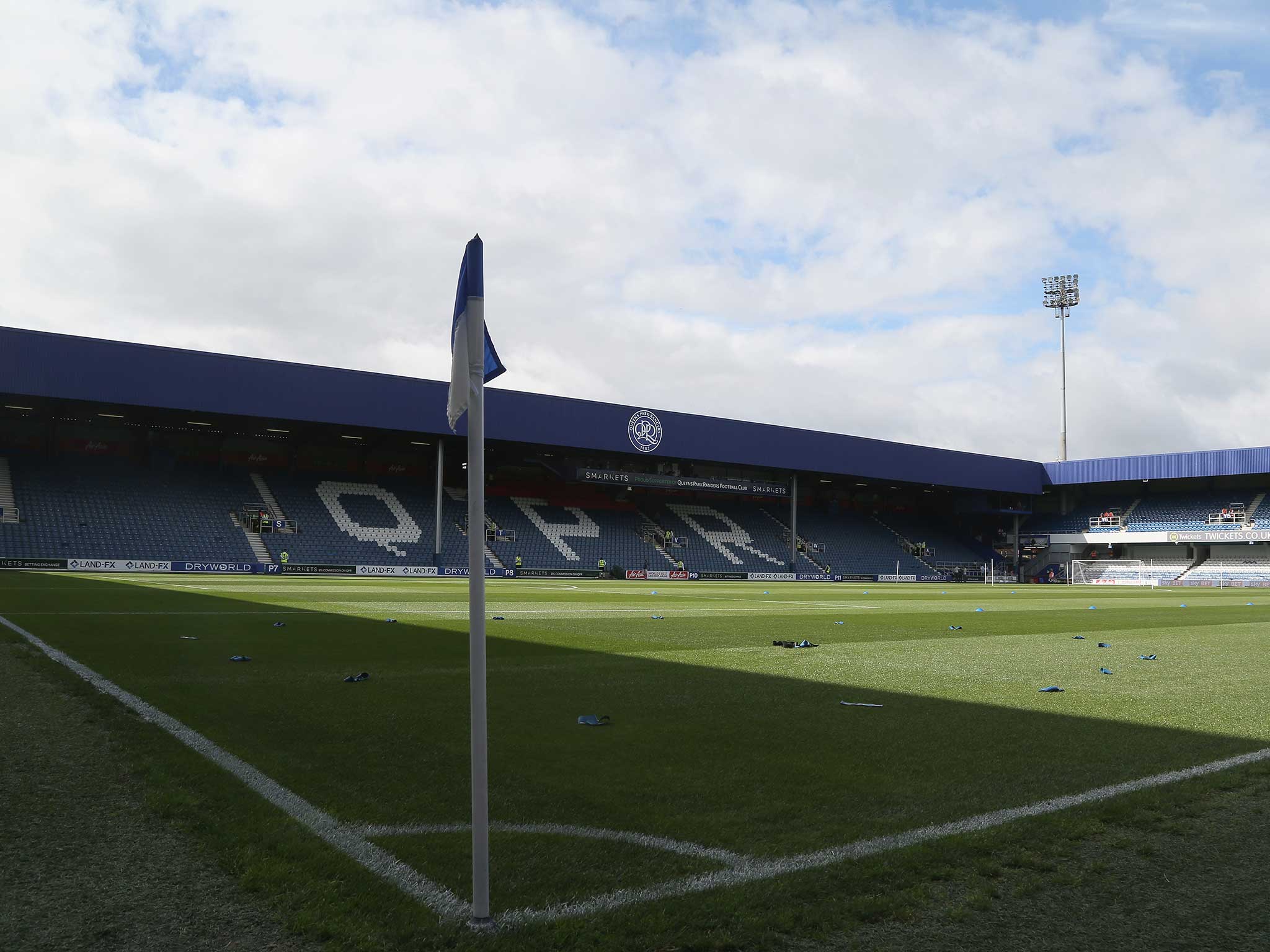Les Ferdinand grew up in Grenfell's shadow, and that's why he's doing everything he can to help those affected
The QPR director of football is proud to be part of the Game for Grenfell, which will raise more funds for this corner of west London that Ferdinand knows so well

Les Ferdinand is scrolling around a map of the Lancaster West estate, pointing out the patches of grass where he learned to play football, in between the blocks of flats. He speaks with nostalgia and pride.
“So this is Barandon Walk, where I lived. This used to be an adventure playground. And these used to be football pitches, this green area here. It would start off four or five a side, then six, seven, eight, nine, 10 or 11. By the end it was 20-a-side. I lived just here and, the amount of time I smashed my own window with the ball was ridiculous.”
Barandon Walk was the first of the low-rise ‘finger blocks’ on the estate to be completed. Ferdinand, his mother Adrianna and sister Anna-Marie were three of the first tenants to move in. It was 1973 and Ferdinand was six years old. “I was a kid and we moved into a brand new flat, which was really exciting,” he says.
“When I moved in, Barandon Walk was the first walkway to open. Testerton and Hurstway hadn’t been finished yet. There were a few people living on Hurstway Walk, but they filled up Barandon Walk first. I remember going past the hoardings as they were being done.”
And then, at the top of the map, overshadowing the football pitches, the playgrounds and the three other blocks, there is Grenfell Tower.
That was the last part of the estate to open, in 1974, and it was part of Ferdinand’s childhood too.
“Underneath the tower itself was the community centre, in the basement. There were all sort of activities in there. That is where I learned to play pool, snooker and table tennis. And educational activities as well. There was a tuck shop, you’d get your pocket money and load up with sweets. I’d say it was like any community centre, but there’s not a lot of them about now. It was just part of my growing up.”
This was Ferdinand’s home from the age of six to 22. It was where he learned to play football and his first team, Barandon Eagles, was made up of boys from his block. They would play up the road at St Mark’s Park. On Friday evenings he would play five-a-side indoor at the nearby Harrow Club. By the time Ferdinand moved out in 1990, after his mother passed away, he was 22 years old and established in the Queens Park Rangers first team.
“It was a diverse mix of people on the estate at the time,” Ferdinand remembers. “West Indian, English, Irish, Moroccan, all sorts. As a kid, you’re going to make loads of friends, and that is what we did.”
Which is all the context you need to know how hard it hit Ferdinand, and everyone connected to Lancaster West, when the fire killed at least 80 Grenfell residents earlier this month. And why Ferdinand has been working so hard, along with so many others, to do what he can to help.

“I remember waking up in the night, my phone was pinging with our family WhatsApp group. Someone mentioned Grenfell but you’re half-asleep, you read it and put it down. “It’s terrible what’s happening”, and I woke up a bit. When Tony Fernandes [QPR chairman] sent a message saying we’d open the stadium, I realised it must be Grenfell Tower. I stuck the TV on and saw the building on fire. And immediately thought to myself, ‘that’s where I grew up.’”
Ferdinand is normally an engaging and enthusiastic talker but now there is pain in his words. “Seeing it on fire, and the way it was on fire, you are sat there helpless, absolutely helpless.” It is the word, along with ‘surreal’, that he uses the most when he discusses the fire. “I was just glued to the television. ‘Talk about how many people have been rescued. Talk about how many people have been rescued.’ I want this this to be taken the right way, but it seemed like I was watching a movie. It didn’t seem real.”
Ferdinand was confronted with the reality of it – the sight, the smell and the smoke – when he drove down to Loftus Road from his home in St Albans the next day. QPR had opened up their ground, a short walk from Grenfell, for donations overnight . Ferdinand knew that he had to be there, even though he could not be ready for what he saw. “Most people stayed away from the area, they knew it was going to be chaos. I remember getting to the top of the road there, and stopping my car at that gap between the motorway and the flats, looking at it, and it’s still on fire. ‘Oh god’, it just seemed so surreal.”
When Ferdinand arrived at Loftus Road he was struck by the activity outside, as the donations piled up on South Africa Road. “I came here the next day and the road outside was littered with donations left overnight, we couldn’t even accommodate everything. People turning up asking ‘how can I help?’ Turning people away because we had so many people helping. It was then that the community spirit really got me thinking that we can do something, as a club, as people, to try to help.”
Since then reacting to the Grenfell fire has become part of life at QPR. Ferdinand has been down to the site “on many occasions” to see what is left behind. “When you actually go down there and get close to the building, it is quite surreal just to see it and think. Just to see and think.” He has also spent plenty of time at the Westway sport centre, the hub for donations and volunteers, where QPR in the Community Trust representatives have been, amongst many others, working with victims and survivors. “We went to down to Westway a few times to see the kids and meet some of the survivors. When all the people had left, I stayed and had a coffee. Their stories are harrowing.”
“We were fortunate enough to meet a few of the survivors. One of them came here. Nick Burton, he was one of the guys that I played again growing up.” Burton lived on the 19th floor of Grenfell Tower with his wife, Pily. They were led to safety through the smoke by a team of firefighters. “By the grace of god he survived. Now it’s about trying to help others.”

At first QPR discussed putting on a charity concert at Loftus Road to raise money for Grenfell, before Ferdinand suggested arranging a football match instead. “We’re a football club. We’re a mile away. Let’s see if we can put on a game that all the community can come to, raise some funds for projects that will benefit the community going forward.”
So ‘Game for Grenfell’ was born. It will take place this Saturday and the two teams will be managed by Ferdinand himself and Alan Shearer. They will feature plenty of current and former players – Peter Crouch, David Seaman, Trevor Sinclair – as well as celebrities from outside the world of football. Marcus Mumford has been involved in the organisation and Mo Farah, Olly Murs and Richard Ashcroft will be among the celebrities turning out.
There will also be local residents, survivors and members of the emergency services playing too, with thousands of free tickets given to them as well. “It is about the community coming together and getting as many people as we can through that door.”
For Ferdinand it is a chance to give something back, to bring his club and his local community closer together, which has always been his goal. “I come from the local area, I grew up around Grenfell tower, I went to school round the corner. I used to walk past this stadium every day of my school life. I know how important it is to the residents.”
But this is ultimately about more than just the particulars of where Ferdinand grew up. This is about the whole country trying to do something for people who were neglected for too long, at an unthinkable price.
“This isn’t just because I lived on Barandon Walk,” Ferdinand explains. “There are loads of people that have done fantastic things after what’s happened. Hence why they’ve raised nearly £20million. Loads of people feel a connection to what’s gone on. Obviously I lived on the estate, but I’m just one of those people that wanted to help.”
For details and tickets, please visit game4grenfell.com
Join our commenting forum
Join thought-provoking conversations, follow other Independent readers and see their replies
Comments